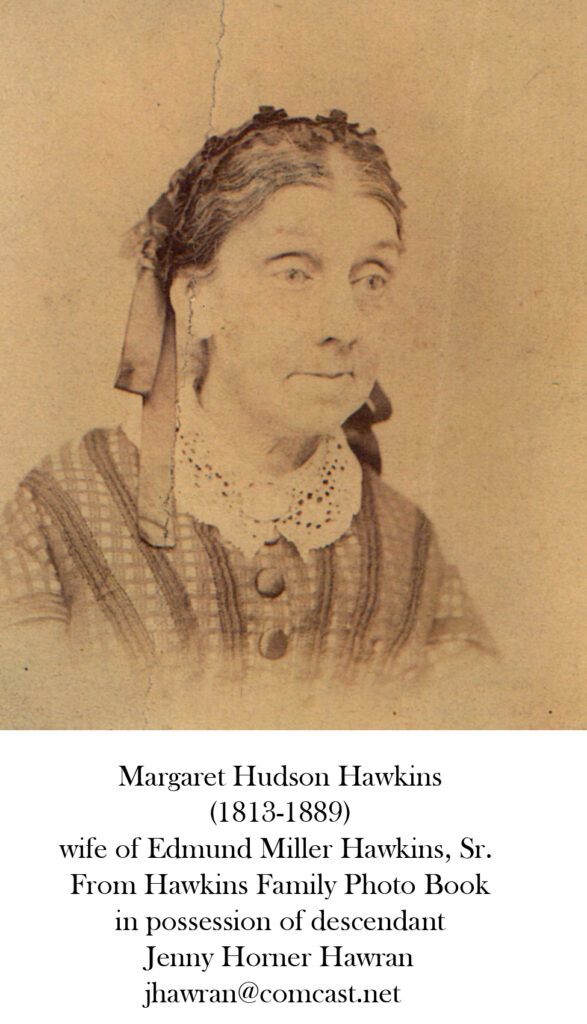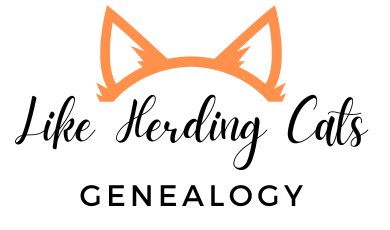Losing a Tree
For several years after I found out I wasn’t my Dad’s biological daughter, I couldn’t even look at his tree anymore. It was literally a full stop. Seeing all the people I thought I came from genuinely hurt my heart. It was like breaking up with someone you love.

I started doing genealogy when I was 15 years old. My paternal grandfather was still alive then and was overjoyed that I was researching the Horner family. He gave me everything he had, and he had a lot. Old photo albums dating back to the mid-1860s, heirloom jewelry, and so many bits, bobbles, papers, and original family trees written by ancestors. Most importantly, my grandfather provided the stories that went along with them. I became the voice of these ancestors so that their stories would always live on. I cherished that I could do that for them. But everything changed when I took that DNA test. One whole side of myself felt suddenly gone. Maybe being a genealogist amplified this feeling because I knew so many details and stories and felt so connected to these people. It still hurts.
And what about this “new” tree I belong to? They are complete strangers that DNA tells me I’m related to. I understand intellectually they are my ancestors, and I enjoy building this tree and learning about them. But it’s like watching a movie from someone else’s life. The connection is not the same, making me feel the loss of what I had even more. I’m disconnected from the family tree I knew yet also disconnected from the family tree I’m biologically related to. It makes me feel out of balance and anxious sometimes. I’m constantly chasing the new family, trying to feel connected.
I started building the new *Callaghan tree because I had to. That’s what genealogists do when they are trying to solve a mystery. But now that the main mystery is solved, I still stare at this tree, building it out and trying to feel something towards these people. I don’t know them. I don’t share any life experiences or have stories handed down to me like it usually happens in your lifetime. My own “new” grandparents never knew they had one more grandchild out there and that I would give them three more great-grandchildren to carry on their DNA.
I love a good DNA reunion story, just like the next person. I really do. DNA testing is an incredible tool for so much good. DNA connections can be joyful for people, and I would never begrudge anyone who experiences them. But every commercial and every social media post lands with me as a mixture of joy and pangs of sadness. DNA is not joyful for me, and it never will be. I wish these companies were more sensitive to that. People want to see uplifting stories; I get that. But it’s not the reality for many of us. Hopefully, we will all come to terms with our reality and find some peace with it. But the loss never completely goes away.
The best an NPE can try to do is be grateful for the ancestors we once had and that we have created their legacy for someone else in our family to appreciate and love. We can still love them too, even if it feels different. The best we can do is to approach our new tree with curiosity and the ability to give them a voice, and we hope that the feeling of connection to them will come, if not in my lifetime, then for my children or grandchildren.
*pseudonym
This is my NPE story of discovering in 2015 that my Dad was not my biological Dad. If you’d like to follow along, I encourage you to start at my first post of the series HERE.

So sad that you and your biological father’s family had no shared history, no shared memories. When we spit or swab, we never know what years-old secrets we’ll uncover, as your experience shows. I admire the sensitivity and grace that guided you through this entire painful process.
Thanks for your support, Marian. I appreciate you reading my story so far. 🙂
” I wish these companies were more sensitive to that. ” What would you like to see them do?
That’s a really great question, actually. I think I’d love for a group of NPEs to sit down for a conversation with them. Maybe that would be enough just to be listened to. Thanks for reading 🙂
🙁 Sorry for your loss. I also have had many family secrets pop up, over the years, reflcted in my DNA, and I too have built up trees for ALL of them but have no connection. 🙁
It’s a strange feeling, isn’t it? Thanks for reading 🙂
My family, too, has secrets. We have figured out some of the NPE connections. One [unexpected] branch of the family still doesn’t know about us. Or at least they haven’t inquired where we fit into their tree. The incident happened over 100 years ago, so they may never figure it out unless they really dig into their history.
Oh wow, when it is that far back, it makes it so much more difficult. Unfortunately, so many families have secrets. Thanks for reading. 🙂
I understand more than I wish, because the same thing happened to me when I proved through DNA that my grandfather’s biological father was not Mr. Sellers, the man who raised him. I know what it feels like to have done all that research on your family and then find out that they’re not your family in the way that you thought they were. And I feel that same sense of loss when I look at the research I did on the Sellers family, all the way back to 1615 in Germany. I still haven’t found anything to replace it, though. I’m still trying to figure out who my grandfather’s biological father was. So I have a broken branch there.
Oh Janice, I’m so sorry you are going through this. It’s such a hard thing to explain to someone unless they have gone through it. Thanks so much for reading.